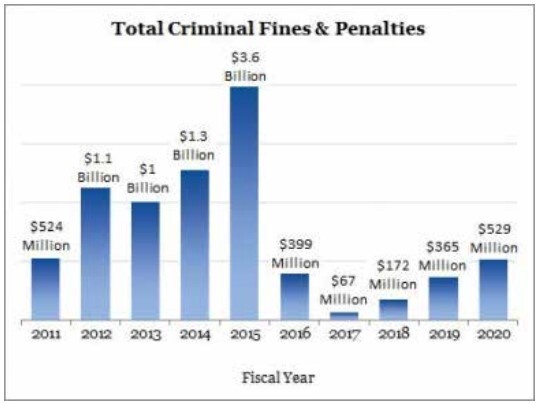How will a second Trump presidency affect the tech industry?
A wild card.

To understand how the tech landscape or anything else would function during a second Donald Trump presidency you first must understand Trump himself. Much ink has been spilled by people with various qualifications about Trump and his flaws, but I think it’s a lot simpler than people make it; Trump is purposefully divisive because he finds humor in the chaos it creates. The man wants to act the way he acts and it’s impossible to tell exactly what he thinks at any point in time. He will say anything to create controversy because he desires controversy. Many people love him for it.
This trait is also part of his political identity. You may love or loathe the man, but he wants you to manifest those emotions either way. He knows what to say and when to say it for maximum effect, and isn’t shy about it. You don’t know what Trump thinks because that’s not important to him and can change at the drop of a hat. He is the embodiment of the saying that any publicity is good publicity and his time in Hollywood taught him well.

One of the web's longest-running tech columns, Android & Chill is your Saturday discussion of Android, Google, and all things tech.
More importantly, he has learned how to surround himself with sycophants, some of whom can actually bring about change. Regardless of what you may think, the president is not in control of the price of gas or eggs and can’t make any laws. He can only sign laws that Congress has approved. Executive orders can have a limited effect, but the law of the land comes from Congress.
With Republicans controlling all three branches of government, expect change. Some change you may not like is bound to happen. But this Congress is unpredictable in a way we’ve never seen before because a sizable portion of the elected officials in both the House and Senate will do and say anything to curry favor with Trump and his ardent followers. Trump can say we should ban TikTok on Monday and change his mind on Wednesday. But if Congress bans TikTok on Tuesday to appease Trump, it’s not undone easily. Trump understands that he can act the way he acts, but Congress must be clear on what is best for the country versus what is said for amusement.
A good example would be Trump’s relationship with Elon Musk. Today, the two seem to share some common goals and we should expect both to profit from the relationship in some form or another. Much of this will affect U.S. consumers and give Musk’s ventures more leeway and lax oversight. However, this relationship can change at any time because of Trump’s (and Musk’s, to an extent) unpredictable nature. Next week Musk could be the villain Trump, and by association, those who follow him in Congress, want to punish.

You’ve no doubt read about what to expect for tech companies under Trump across the internet from some reputable sources. My inbox is full of pitches, ideas, and interview offerings from experts on the matter as well.
I say they all may be right. Also, they all may be wrong. There’s just no telling what we should expect in the future because even the “people in charge” don’t know what to think in the future; Trump hasn’t told them what to think yet.
Be an expert in 5 minutes
Get the latest news from Android Central, your trusted companion in the world of Android
I’m not saying any of this as someone who opposes (or endorses) the idea of a second Trump presidency; to me, the man is no better or worse than any other successful politician. I’m not a Republican, Democrat, or even an Independent. If I have to apply a label to myself, I’m a Defeatist; I think a ruling class has inserted itself into politics in a way that you either submit and enjoy the enrichment that comes along with it or don’t get elected. Ideally, sowing division among the electorate is the goal to keep anyone who disagrees from ever gaining popularity. Ignoring his personal life, Trump is no better or worse than any other successful politician on the national stage, he's just different. Going by the 2024 election results, plenty of people prefer this sort of governing.
Not counting any personal grievances that make their way into American politics, expect a second Trump term to look a lot like any other administration where Republicans control the government: more friendly to companies like Amazon, Apple, and Google, fewer consumer protection laws successfully introduced to Congress, and a short period of economic growth followed by a hard recession. We have the blueprint of how this works, which is readily available.
As examples, in 2019 DoJ anitrust division head Makan Delrahim actively lobbied regulators and lawmakers to ensure the deal between Sprint and T-Mobile was successful. The Trump administration FTC's lone successful antitrust decision against Qualcomm was sullied when the DoJ intervened against the FTC, filing a motion that defended Qualcomm. Delrahim recused himself from this case as he was the outside counsel for Qualcomm prior to his position with the DoJ.

I would not be surprised to see Google prevail in its current antitrust cases under a new FTC, Amazon dodges any similar charges, and Meta continues its lawful-evil ways without any oversight. The executives of these companies may decree a Trump presidency as a travesty, but money doesn’t lie and plenty of it will continue to change hands with all levels of the administration, just as it would had Harris defeated Trump.
Expect Biden’s Executive Order governing AI, which Trump has pledged to repeal, to disappear. With noticeable support from many of the companies covered under this order, there should be little outcry from the tech sector. Congress will also resist creating any new AI regulation.
On the question of tariffs, under the law, only Congress has the authority to implement them. That didn’t stop Trump from imposing tariffs on Chinese goods or Biden expanding them and economists claim there are loopholes that could be used to apply new tariffs on foreign goods.
Don’t blindly believe that we’ll be paying hundreds more for tech products because the companies that make them have plenty of influence on lawmakers. Nobody will pay $1,400 for the base model Galaxy S so that simply won’t be the price. Any tariffs and their effects will be mitigated somehow. Let’s hope the solution doesn’t wreak havoc down the road.
While societal norms and individual rights are going to change, I predict the tech landscape to go mostly the same way it always has, both in the U.S. and abroad, favoring the wealthy donor class over the consumer.

Jerry is an amateur woodworker and struggling shade tree mechanic. There's nothing he can't take apart, but many things he can't reassemble. You'll find him writing and speaking his loud opinion on Android Central and occasionally on Threads.
You must confirm your public display name before commenting
Please logout and then login again, you will then be prompted to enter your display name.
